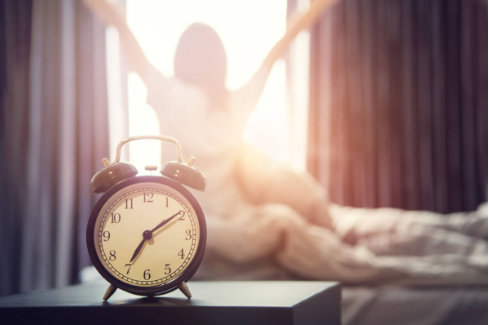
Ever struggled to wake up in the morning? That groggy, disoriented feeling isn’t just in your head; it’s actually called “sleep inertia,” and it can linger for up to two hours after waking, even if you’ve had a full eight hours of sleep. While many of us reach for coffee to combat this sluggishness, Japanese researchers have discovered a surprisingly effective alternative: letting natural morning light into your bedroom at precisely the right time.
A new study published in the journal Building and Environment found that using motorized curtains to control natural light exposure before waking significantly improved alertness, reduced sleepiness, and enhanced overall morning functioning. The most effective approach? Opening curtains just 20 minutes before your alarm goes off.
Researchers from Osaka Metropolitan University emphasize that bringing natural light into bedrooms provides dual benefits of energy conservation and improved physical and mental health.
Insufficient sleep has become a growing public health concern. According to a 2023 survey by the American Academy of Sleep Medicine, 64% of Americans use some form of assistance to fall or stay asleep. Poor awakening quality—characterized by sleepiness, fatigue, and reduced alertness—affects countless individuals daily, potentially impacting productivity, mood, and overall well-being.
Morning Light and Sleep Quality
Researchers tested three different natural light conditions: one where curtains opened 20 minutes before waking (Intervention A), another where they opened at dawn and remained open until waking (Intervention B), and a control condition where curtains stayed closed until after waking.
Using a combination of brain wave activity, heart rate variability, reaction time tests, and questionnaires about sleepiness and fatigue, the researchers tracked how participants felt upon waking under each condition.
Less Light Exposure May Be Better
Both light conditions significantly improved subjective sleepiness and objective alertness compared to the control condition. However, Intervention A, where curtains opened just 20 minutes before waking, performed best overall, particularly in reducing objective sleepiness measured by brain wave activity.
More light exposure isn’t always better. In fact, the study found that excessive or premature exposure to natural light (as in Intervention B) appeared to increase mid-sleep awakenings, potentially disrupting sleep quality in the crucial period just before waking.
For those who sleep late or struggle with light sensitivity, rather than leaving curtains open all night or keeping them completely closed, a timed approach with motorized curtains or similar technology could provide the best of both worlds—protection from nighttime light pollution and beneficial morning light exposure when it matters most.
As increasing numbers of people face sleep challenges in our modern, indoor-focused society, architectural design that accounts for natural light exposure could play a crucial role in improving public health. Smart homes with automated window coverings might one day be suggested as readily as sleep medications.
Sunrise alarm clocks that simulate dawn with artificial light have gained popularity in recent years, but the researchers point out that natural daylight offers advantages that artificial light cannot replicate. Our circadian rhythms evolved in response to natural light conditions, making actual sunlight potentially more effective for regulating sleep-wake cycles. By harnessing something as fundamental as sunlight—at precisely the right time—we might improve our mornings without reaching for that extra cup of coffee.
Source: https://studyfinds.org/natural-light-boosts-morning-alertness/







